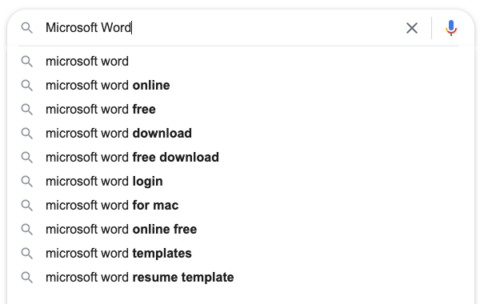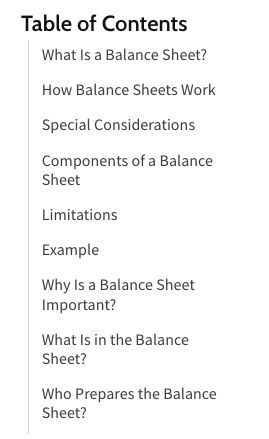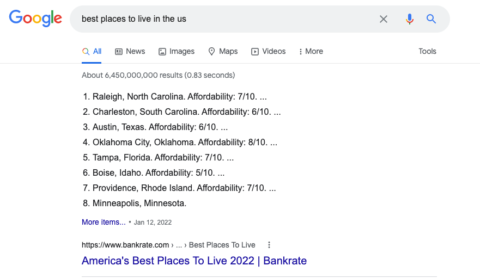In the world of search engine optimization (SEO), the top strategies for copywriting are continually shifting as we adjust to Google’s algorithm updates.
You may have come across digital marketing experts who offer guidance on how to improve your place in the search rankings by following their recommendations for word count range.
There have been multiple debates around whether word count matters in SEO, and it’s time to get to the bottom of it.
Is Word Count A Ranking Factor?
Google’s John Mueller has confirmed that word count is not a ranking factor for the search algorithm.
Specifically, he states that “just blindly adding text to a page doesn’t make it better.”
Rather than looking at the number of words on a page, Google’s algorithms look for relevant, original, and high-quality content.
Why Long-Form Content Tends To Rank Higher
Despite Google’s confirmation that word count doesn’t directly affect rank, you can still find plenty of articles and keyword tools that suggest longer word counts.
So, why do tools like Yoast and Clearscope provide recommended word counts if the numbers on the page don’t directly impact rank?
There are a few reasons a higher word count may improve your ranking indirectly.
Some of these tools are basing word count recommendations on competitive analysis.
Writing longer content makes it easier for Google’s algorithm to figure out what your page is about.
Well-written comprehensive pieces also position you as an authority on the topic and enable you to rank for long-tail keyword variants.
How To Determine The Right Word Count For Your Content
There’s no rule of thumb to follow in terms of the word limit for SEO.
Instead, you can look at your keyword research, competition, and past performance to determine your content’s best word count range.
Start With Your Keyword Strategy
You may create a new piece of content with a single target keyword in mind.
But a study by Ahrefs found longer content is more likely to rank in the top 10 for multiple keywords.
By increasing the length of your article, you can cover your primary topic from various angles, which means you can rank for more keywords.
In particular, longer articles have a higher chance of ranking for long-tail variations of your primary keyword, with lower competition and higher conversion rates.
For example, long-tail variants of “Microsoft Word” might include “Microsoft Word for Mac” and “Microsoft Word resume template.”

Screenshot from search for [Microsoft Word], Google, March 2022
So if you’ve identified long-tail keywords that you want to target, consider increasing your word count to address those more specific queries.
Check Out The Competition
You can also use word count as a benchmark metric when comparing your content to the competition.
Many keyword research and content optimization tools provide the word count of the top-performing articles for any given keyword.

If you don’t know how long an article should be, looking at the word count of the current top performers is a good place to start.
Pay Attention To Search Intent
In addition to looking at what the competition is doing, you should always pay attention to the search intent associated with your target keyword.
Intent will help define what makes content useful and relevant to the user.
In other words, think about what your target audience wants when they type a keyword into the search bar.
If they want comprehensive information, you might aim to meet or exceed your competitors’ word count.
Conversely, you might choose to create shorter content that gets to the point faster for keywords where the audience wants quick answers.
As it relates to word count, search intent can help you decide whether you want to follow the competition’s lead or differentiate your content through length.
Review Your Performance
Finally, you can look at your past performance to discover what content length works best for you.
Review your SEO performance regularly and see if trends arise.
Is there a word count sweet spot where you tend to rank higher?
Or maybe you have some shorter articles that aren’t ranking as high as you’d like.
In that case, try going back to your keyword research and figuring out how you can lengthen the content with more useful and relevant information.
Additional Factors That Affect Your Ranking
You can use word count to enhance your keyword research and competitive strategy, but it’s not going to be the ultimate deciding factor for search algorithms.
If you want to improve your SEO performance, here are some additional writing tips to consider:
Content Structure
Google looks at structural elements, such as heading tags, as a way to better understand your content and send the right users to your page.
Formatting your content with a clear, logical structure to your content also improves readability and usefulness for the people searching on Google.

Instead of just stuffing your heading tags with keywords, think about the best experience for your reader.
Use headings to break up large chunks of text and make it easy for someone to find the information they want.
Quality Of Information
Information quality remains a top determining factor for search engine results page (SERP) rankings.
In other words, adding a bunch of fluff to increase your total word count won’t help you.
According to Google, the search algorithm prioritizes reliable information and pages that “demonstrate expertise, authoritativeness, and trustworthiness on a given topic.”
Back up statements and claims with links to relevant external data sources to improve your content quality.
You should also ensure your content is original by doing plagiarism checks and avoiding duplicate content on your domain.
Visual Support And Imagery
Images and other visual support can help you demonstrate relevance to your target keyword, another primary factor the algorithm uses.
For example, if you’re targeting the keyword “Harry Potter,” Google will look for relevance signals such as pictures of the character or video clips related to the books or movies.
Adding media can improve the user experience by breaking up large blocks of text and catering to visual learners.
High-quality original images also enable you to rank in Google Images.
Optimize For Special Content Blocks
Google continues to make its SERP pages more intuitive and browseable through special content types and featured snippets.
These content resource blocks appear at the top of SERP pages and often give users a quick answer to their queries.

Screenshot from search for [best places to live in the us], Google, March 2022
Optimizing your content for featured snippets can elevate your content to position zero, above all other results.
Around 70% of all featured snippets are paragraph types, which could be an excellent place to start experimenting.
Aim to answer the keyword question using 50-250 characters.
Final Thoughts: Why Is Word Count Important For SEO Strategy?
Optimizing content for SEO isn’t as simple as running through a checklist of keyword mentions and article length.
Ultimately, you have to understand the audience of each keyword and publish the content that best serves their needs.
Word count won’t be the factor that pushes your content to the top, but it can help you define what’s “relevant and useful” for a particular keyword.
Use the writing advice and questions above to find your optimal word count starting point, but keep in mind that all your words should provide value to your readers.
More resources:
- 5 On-Site SEO Factors That Matter Most
- Does Content Marketing’s Love For AI Make Writers Obsolete?
- Perfectly Optimized Content From Start To Finish
Featured Image: Wall to wall/Shutterstock


